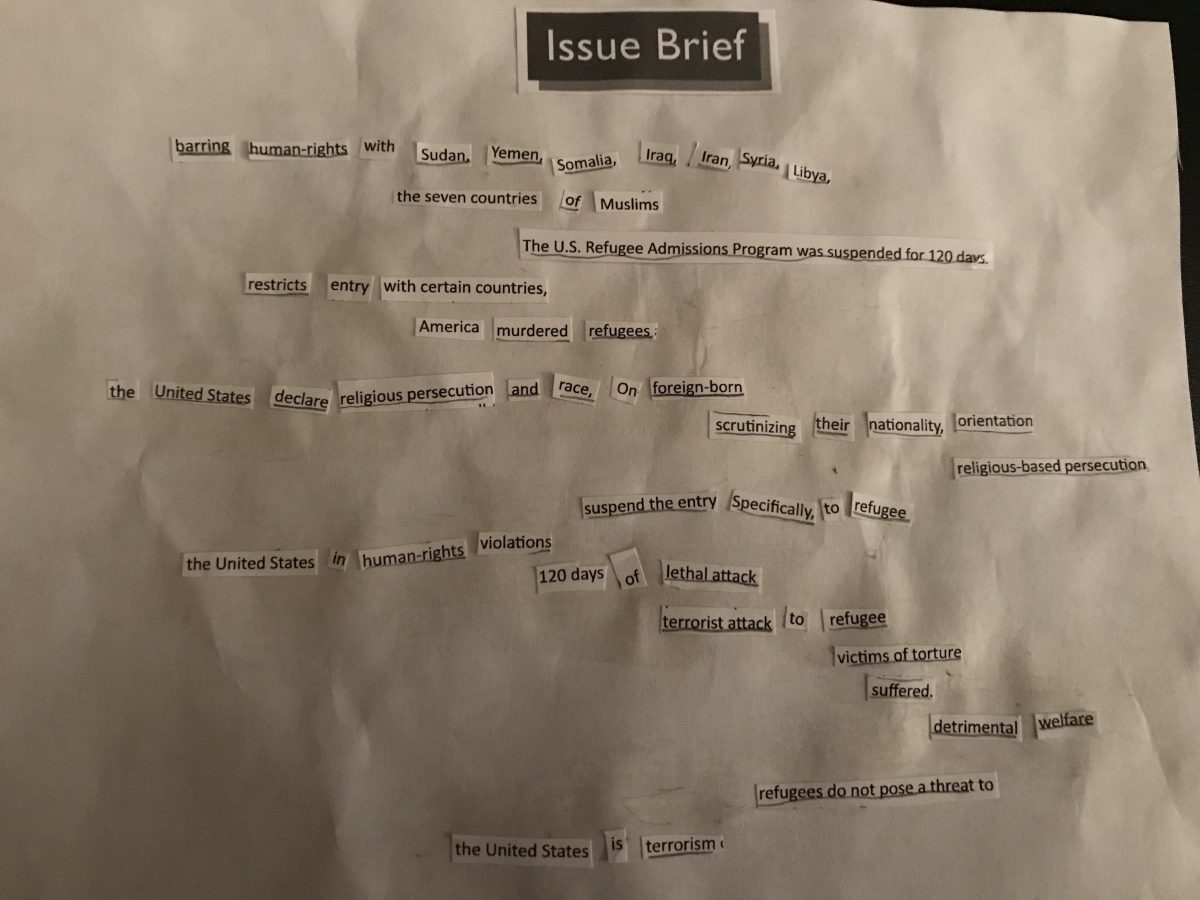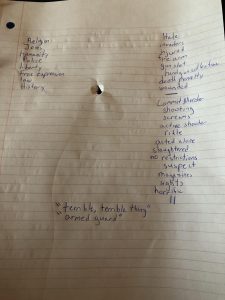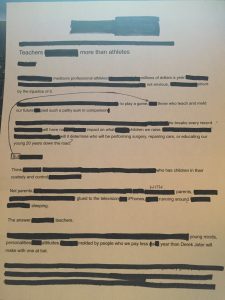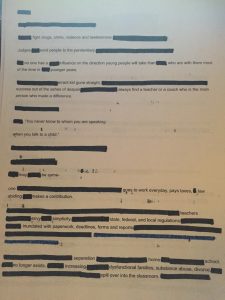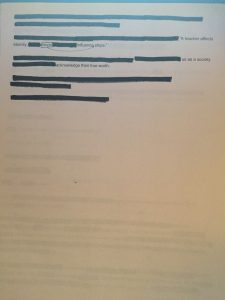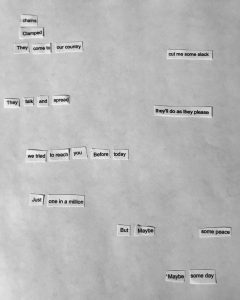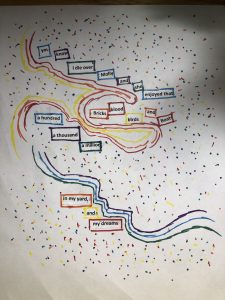Mean, by Myriam Gurba, is an unabashed comedic recount of the author’s experience growing up in Southern California as a young mixed-race girl. She covers topics from sexual assault, racism, and sexism to reconciling her own sexuality from a young age, all in a tone of deadpan humor. Gurba’s writing style is a combination of poetry and short story prose, which allows her to say a lot in a short amount of space. The first two pages, the short story titled ‘Wisdom’ is an unexpected and brutal story of a rape and murder of a Mexican girl named Sophia Loren. The press described the scene as “the bludgeoning death of a transient in Oakley Park.” This description reduces her to transience and ignores her name. In Greek, Sophia means Wisdom; hence the title of this short story. All of the titles Myriam Gurba chose for her pieces have a significant connection to the message she is trying to relay in each piece, but they are not always clearly spelled out for the reader as it is in the opening story. Can you find a connection between the title of the short story and explain how it is correlated with the message of that particular story? Use quotes from the text to support your claim.
Her father being Polish and her mother Mexican, they each agree to speak to her in their native language as she grew up to help her learn to be bilingual at a young age. This can prove to be confusing for a young mind. She went into nursery school thinking they were all the same language. In the English language there are many words that have more than one meaning. The same is true in Spanish, some words mean different things depending on the context of the sentence, or placing an accent over one letter of the word instead of another can completely change its meaning. The author plays with this concept, jovially in the last paragraph of the short story, ‘English is Spanish.’ She uses Spanish words that have a different meaning if used in a different context and if the accent was not there or in a different place. For example “cómo estas?” translates to “how are you?” and “como éstas” translates to “like these.” Looking at the paragraph, there is a lot of humor which could be lost in translation if you are unfamiliar with the Spanish language. Luckily for me, I am taking Spanish 102 so I was able to translate it without too much difficulty.
“On my first day, yo hablé con mis nursery school maestras usando palabras como éstas because I assumed we all had the same words. I didn’t know I was spewing ciphers fed to me by a foreigner. I didn’t know Mexicans were Mexicans, a category some mistake for subhuman, a category my grandfather mistakes for divine. I thought of myself as a person, and I understood people. People were people, and people talked, and talking was for everyone. Today I understand that words are for everyjuan, but that not everyjuan is for every word, so please, dear reader, si no te molesta demasiado, pass me the metaphorical French fries as you whisper what you wish had been the first un-American words to pass through your uncorrupted lips.” (5)
This paragraph translated in English means:
“On my first day, I spoke with my nursery school teachers using words like these because I assumed we all had the same words. I didn’t know I was spewing ciphers fed to me by a foreigner. I didn’t know Mexicans were Mexicans, a category some mistake for subhuman, a category my grandfather mistakes for divine. I thought of myself as a person, and I understood people. People were people, and people talked, and talking was for everyone. Today I understand that words are for everyone, but that not everyone is for every word, so please, dear reader, if it doesn’t bother you too much, pass me the metaphorical French fries as you whisper what you wish had been the first un-American words to pass through your uncorrupted lips.” (5)
This paragraph, especially the final sentence, is a bit jarring and abrasive as she is directly addressing the reader in such a harsh tone. She also plays with the word ‘Everyone’ changing it, twice out of the three times it is used in the paragraph, to become ‘Everyjuan’ a play on the word to relate it back to Mexican culture. Were there any other parts in the text that jumped out to you as humorous or caught you off guard, either playing with language or how the author made light of a dark situation?
Reflection:
All of the titles Myriam Gurba chose for her pieces have a significant connection to the message she is trying to relay in each piece, but they are not always clearly spelled out for the reader as it is in the opening story. Can you find a connection between the title of the short story and explain how it is correlated with the message of that particular story? Use quotes from the text to support your claim.
Were there any other parts in the text that jumped out to you as humorous or caught you off guard, either playing with language or how the author made light of a dark situation?

